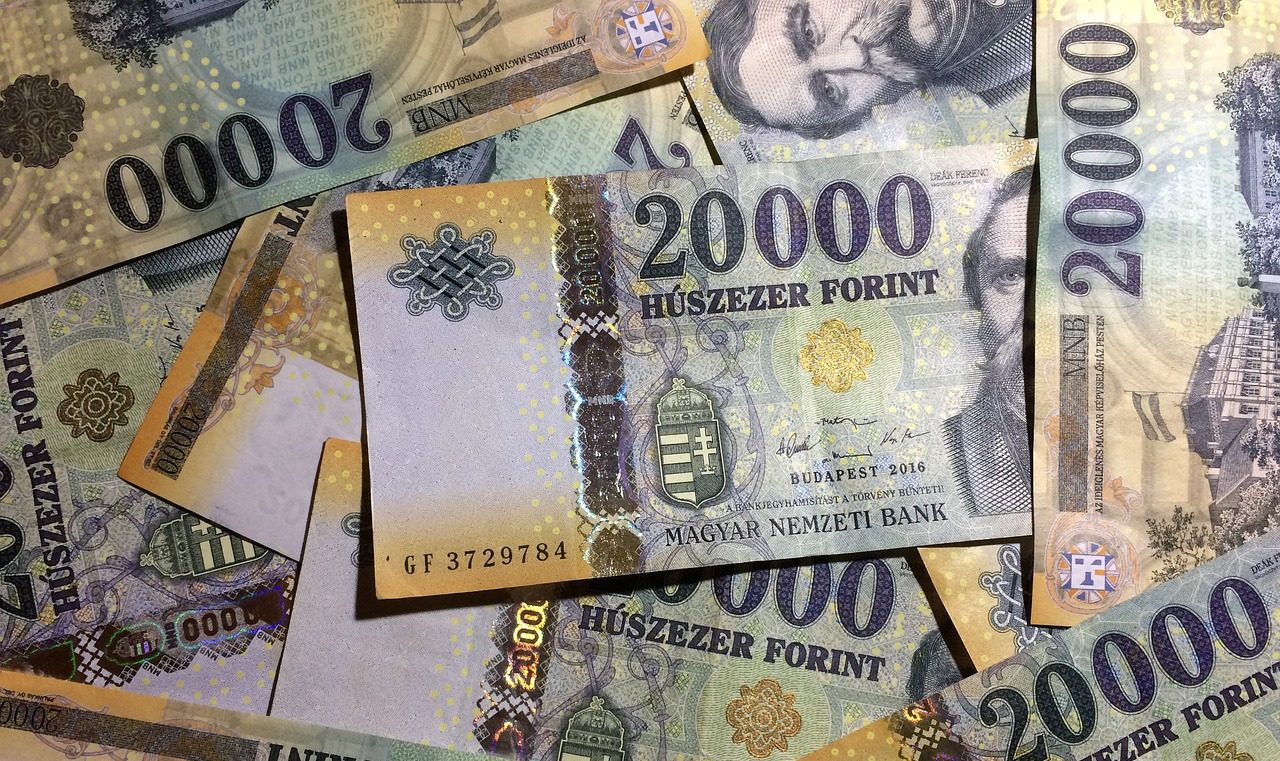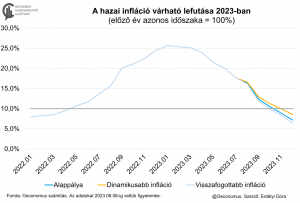
In the financial sector, salaries have crossed the 1 million forint mark for two consecutive months this year.Continue reading

Inflation in Hungary slowed to 17.6% in July this year (compared with July 2022. Previous inflation in June: 20.1%, year-on-year). On a monthly basis, consumer prices rose again from June to July, but not significantly compared with previous years, with consumer prices in Hungary rising by 0.3% on average, reported the Oeconomus think tank.
Food prices fell by 0.9% on average in July on a monthly basis for the second month in a row, and prices of clothing and consumer durables also became cheaper. In the coming months, the gradual deceleration of the annual rate of monetary depreciation in Hungary could continue and by the end of the year the single-digit inflation range could be within reach, i.e. inflation could fall below 10%.

Past and predicted inflation in Hungary. Graphic: Oeconomus
Via Oeconomus; Featured Photo: Pixabay